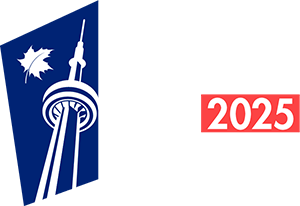How to file an appeal
If you disagree with the assessed value or classification of your property you may file an appeal with the Assessment Review Board (ARB).
Purpose for filing an appeal
What you should know before filing an appeal
Cost
Deadlines to file an appeal
The ARB Hearing Process
Request an Appeal to the Ontario Divisional Court
Relevant Forms
Contact Us
Purpose for filing an appeal
You may file an appeal for any of the following reasons:
- You believe your property's assessed value is incorrect
- You believe your property's classification is incorrect
- A person was wrongly omitted or placed on the assessment
- A person was wrongly omitted or placed on the assessment in respect of school support
- You have more than one property classification listed on your Notice, and the portions of assessed value for each class are incorrect. For example, your property may include both commercial and residential portions.
What you should know before you file an appeal
Residential, farm, managed forest and conservation land
If you own a property with residential, farm, managed forest or conservation land classification, you are required to file a Request for Reconsideration before you can file an appeal.
For issues with respect to eligibility for properties classed as farm, managed forest or conservation lands please contact the appropriate agency or ministry to learn more about their appeals process, deadlines, fees and forms.
- Farm Property Class Tax Rate Program
- Managed Forest Tax Incentive Program
- Conservation Land Tax Incentive program
All other businesses and non-residential properties
An RfR is not required. You may file an appeal directly with the ARB.
Third party appeals
If you are not the property owner or a person entitled to receive a Property Assessment Notice for the property in question you must file an appeal directly to the ARB. You may not file an RfR with MPAC.
The ARB will process appeals filed by a third party as long as Part 5 of the ARB Property Assessment Appeal Form is completed. Please visit https://tribunalsontario.ca/arb/ to learn more about the ARB's requirements for filing a third party appeal.
Cost
There is a fee for filing an appeal with the ARB. Please visit https://tribunalsontario.ca/arb/ to learn more.
Deadlines to file an appeal
Residential, farm, managed forest and conservation land
You have 90 days after we notify you of our RfR decision to file an appeal with the ARB.
Business and non-residential
For more information about the appeals process, deadlines and fees, to access the forms, please visit https://tribunalsontario.ca/arb/
The ARB hearing process
Overview of the process
This information summarizes the ARB hearing process, which may change. For more detail and the most up-to-date steps and fees, please visit the ARB's website.
Filing an appeal
- You must initiate the appeal process by filing your appeal online and paying the associated fees to the ARB.
- When the ARB receives your appeal, they will send you an acknowledgment letter.
- If the appeal was filed on time and the fee is paid, the ARB will assign a commencement date and schedule of events to your appeal(s), including a mandatory meeting date between yourself, MPAC and the municipality.
Appeals are heard in one of two proceedings before the ARB:
- Summary proceeding: If your property is classified as residential, farm, conservation land or managed forest, your appeal will be heard by way of summary proceeding.
- General proceeding: If your property is part of another class, it will be heard by way of a general proceeding. The Summary proceeding has fewer steps than the general proceeding, and is used for less-complex appeals.
Before your hearing
In general, the pre-hearing steps are as follows:
- The ARB will assign a start date to your appeal(s) that will take place within the four-year assessment cycle.
- You (and/or your representatives), MPAC, and the municipality must start working on the appeal and follow a schedule of events and complete procedural steps by your assigned deadlines.
- If you, MPAC, and the municipality are unable to resolve the appeal by the mandatory meeting deadline, the Board will schedule a hearing and will mail you a notice of hearing.
- All evidence must be filed by the filing due date specified in the schedule of events to be considered at a hearing. Late evidence will not be admitted at the hearing.
At the hearing
All summary proceeding and general proceeding hearings will be done by teleconference, unless the ARB directs otherwise. The ARB may schedule hearings in the general proceeding in person where all parties agree and reason(s) to do so are provided with the request.
- The parties are sworn in or (s)
- you and/or your representative(s)
- MPAC's representatives
- the municipality involved
MPAC’s Property Valuation Analyst will describe the property under appeal, including the property details, the method of valuation and the valuation date. The Property Valuation Analyst will then present their evidence. You or your representative, followed by the municipality if it is participating, may then cross-examine the Property Valuation Analyst about MPAC's evidence.
The municipality may present their evidence. Both you/your representative and MPAC may cross-examine the municipality about their evidence. You or your representative will then be asked to present your evidence as to why you believe the assessment and/or classification are incorrect.
The Property Valuation Analyst and the municipality may then ask you or your representative questions about your evidence. All parties may make a closing statement, also known as "submissions". All parties may have the opportunity to reply to the closing statement. The ARB will make a decision on your appeal at the conclusion of the hearing or reserve its decision, to be made in writing, to a later day.
Ontario Superior Court of Justice
If you'd like to appeal an ARB decision to the Ontario Superior Court of Justice, see the appropriate section below for more information on the process. For more detailed information, please see the Ontario Ministry of the Attorney General's Guide to Appeals in Divisional Court.
There are three common reasons to engage the Ontario Superior Court of Justice.
- Matters not within the jurisdiction of the ARB.
- Seeking the opinion of the Divisional Court.
- Seeking leave to appeal an ARB decision.
Matters not within the jurisdiction of the ARB
If your matter does not fall within the jurisdiction of the ARB, you, your municipality or MPAC can apply to Ontario's Superior Court of Justice. The most common reason this happens is that an organization is seeking exemption from taxes.
Seeking the opinion of the Divisional Court
During the ARB process, you, your municipality and/or MPAC may ask the ARB to seek an opinion from Ontario’s Divisional Court on a question of law. The Board will usually seek consensus among the parties and will then write to the Divisional Court, who will hear the matter and give its decision in writing.
Seeking leave to appeal an ARB decision
After the ARB makes its decision on an assessment appeal, you, your municipality and/or MPAC may apply to Ontario’s Divisional Court for leave (permission) to appeal on any question of law that arose during the hearing or in the decision. This application must be made to the court within 30 days of the ARB decision. A judge of the Divisional Court will hear and decide on your application. If it is granted, a three-judge panel of the Divisional Court will hear the actual appeal.
The parties also have the option to submit a Request for Review of an ARB decision to the chair of the ARB.
Request an appeal to the Ontario Divisional Court
To request an Ontario Divisional Court hearing, please review the Ontario Ministry of the Attorney General's Guide to Appeals in Divisional Court.




